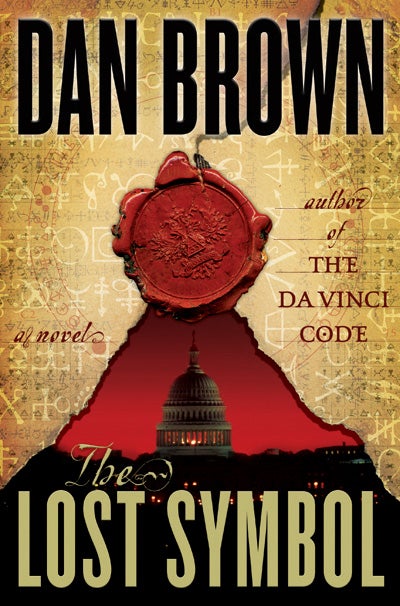Monday, April 27, 2009
I guess it's time for another confession.
I love me a good dystopian novel. Being a rather optimistic and cheerful person, this usually surprises people.
Maybe they cater to my sarcastic side. Maybe they are a way to cope with all the gloom-and-doom-end-of-the-earth possibilities my dad fretted over at the dinner table. After all, at least nothing could be as bad as what happened in the books I was reading, so what did I have to worry about?
1984, Brave New World, The Giver, Fahrenheit 451 (to name a few) are among some of my favorite books.
A surprising number of dystopian novels are assigned reading during high school. Maybe this is where I get my love of them. They felt like some of the first grown-up books I read.
So, after reading the back of The Handmaid's Tale, I was surprised that 1) I hadn't read it earlier and 2) I hadn't even heard of it during high school (which, it turns out is a good thing. This is NOT a book a high schooler should crack open.)
After reading this book, I feel like it is a book I'm expected to hate. With all its descriptive language, demoralizing situations, and almost dismissal of the concept of ingrained humanity and dignity, I feel that few people I know would enjoy the book. Most would probably not even finish it.
So, even though I "should" hate it, I don't.
Margaret Atwood's sparse and austere story follows a woman through the overthrow of the United States and the implementation of a militant theocracy.
It is a time where the oceans and air are toxic from pollution, nuclear energy has gone awry, women are over-zealous on birth-control and abortion. All these factors have lead to a precipitous drop in the birth rate. Healthy infants become the most prized commodity.
The main character, found to be one of the few women healthy and uncontaminated enough to still bare children, is stripped of her relationships, her dreams, her right to read, even her name, to be farmed out to high-ranking families, in hopes that she will conceive and bare that family a baby.
Marginalized, but highly valued, the Handmaids only role in society is to be shipped from infertile couple to infertile couple in order to "replenish the earth."
The new government spends a lot of time talking about how modern society had taken away everything of value to women. They no longer felt child-bearing was important. They no longer viewed their bodies as sacred, subjecting them to surgery and vulgar fashions. Relationships no longer had any meaning, as both men and women jumped from relationship to relationship.
But, like all great dystopian novels, that is where the great irony lays. Through helping women "fulfill their greatest potential," the women are stripped of identity and worth. Sex loses all of its intimacy and meaning, and becomes purely a commodity, a business transaction.
Although this is the prevelant theme throughout Atwood's book, I was just as intrigued by her commentary about other social issues. Accused on only being "man-hating propaganda" I felt that the arguments were infinitely beyond the supression of women.
The new government touts itself as a more holy, pure religion. This new belief system is forced upon each individual. Conform, or die. It is the eptimoe of religion without spirituality. Prayers are called in, not said, not felt.
What matters more? Freedom to, or freedom from. The argument in the novel is that in order to guarentee freedome from, any freedom to must be restricted or eliminated.
The nameless main character glides through all these morality issues, nearly too numb from her own losses to react. Mostly, she can only observe.
I desperately wanted her to find her happy ending. To find her daughter that had been stripped from her. To once again feel a connection to another person.
But, once again, like all great dystopian novels, the Handmaid's Tale givens no answers.








3 comments:
Same flavor as a Brave New World, if I can guess. It takes alot of clear minded, established and secure beliefs to reach comprehension of another thought system that challenges those. It's true we have the assumption that all but the mentally unstable cherish life; cherish their own natures. This is not a world-wide view as we can see from the vareity of other societies and cultures. It makes we see how truly precious an opportunity to live on this continent.
Good review.
Thank you for your review. I am ashamed to admit that I have never read Brave New World, 1984, or the others. And I haven't read The Handmaid's Tale. But I'm going to give it a go.
This is a great review. It's kind of a scary concept that there would be such regulation, but it's also something that I could actually imagine happening by some twisted group of individuals. Mankind can be rather demented that way.
The Bell Jar is a good read. I remember that book from 12th grade. Good old Sylvia Plath...
Post a Comment